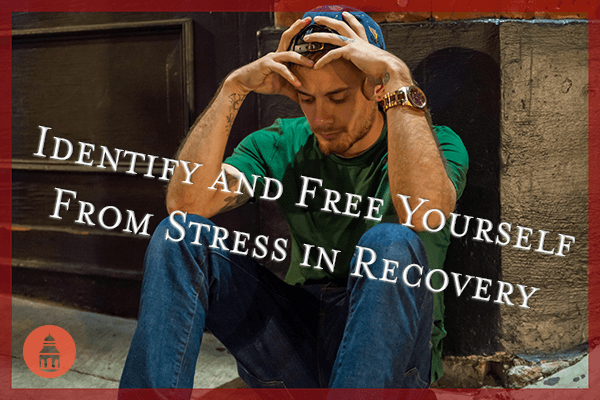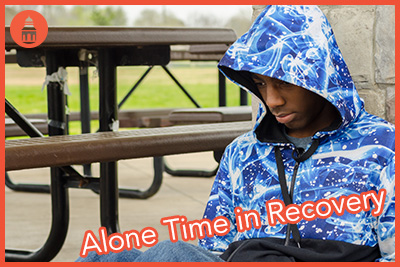
Do you feel like you are often in a state of emotional chaos? Are you frequently coming to your sponsor, your therapist, and your friends with huge, ongoing drama?
There are a number of reasons why you may be experiencing high stress levels in your life in recovery, even without the complication of drug and alcohol use. The good news is that there are a number of ways to manage the problem, starting with identifying the source of the issue and then seeking out the “fix” that will limit, if not eradicate, that source of stress in your life.
The not-so-great news is that if you choose to allow stress to rule, it can lead to relapse and potentially a return to active addiction.
Here are some of the ways you can identify the sources of stress in your life and begin the process of creating positive change that will help you to be free from the drama:
Your Partner
For many people in recovery, issues with a romantic partner or spouse are tethering them to stress. If the relationship is a long-term one that has gone through active addiction, treatment, and recovery, then some level of stress is inevitable. It can take time to process what happened, learn new and more effective methods of communication, and determine whether or not the two of you are still a good fit. It can be a stressful time for both of you, and if one or both are “just not that into it,” it can be a very difficult time emotionally.
Fix:
- Work with a couples counselor regularly to discuss particularly stressful issues and get guidance.
- Acknowledge that it may not be the right choice to stay together.
- Open your heart and mind to the needs of the other person.
- Create and maintain clear boundaries that protect you. While you must do what you can to make amends, you are an equal in the relationship and should be treated as such.
Your People
There are a lot of broken people in recovery, and just because someone is showing up regularly to 12-Step meetings or has some clean time, it does not mean that they are necessarily a great personality fit for you. Not everyone is at a point where they are willing to live an honest and balanced life, even if they are avoiding drugs and alcohol, and it is important to surround yourself with people who are not only sober but also striving for a peaceful and happy existence in recovery.
Fix:
- Notice “red flags” early on when you meet someone – signs of drama, codependency, and deep angst that can indicate an ongoing penchant for drama.
- Set boundaries if it feels that someone is being intrusive on your time, like only answering texts or calls between certain hours or avoiding touchy subjects.
- If someone is often standing you up, not calling you back, or otherwise making you feel less confident about yourself, it may be time to direct your attention on new friends.
- Rather than focusing too heavily on one specific friendship, try to stay connected to a group of people so you don’t end up in a codependent friendship.
Your Job
Work can be a source of stress for anyone, but in recovery, feeling under-skilled, dealing with angry or difficult coworkers, or feeling unfulfilled by your work can be a trigger for relapse. Even if it is a job in a career that you thought you wanted or a job you need to pay the bills, there are options.
Fix:
- Address the problem head on. If a coworker is giving you a hard time, there is too much interaction with drugs or alcohol on the job, or you are feeling a lack of fulfillment, ask for changes that will empower you to find a solution.
- Talk to your boss. If you can’t manage to shift things around on your own to decrease interaction with stressors, talk to the higher-ups to see what changes can be made.
- Consider increasing your skillset. With experience in your current job and more credentials, you will be eligible for a promotion or a lateral move in a different area.
- Start looking for a new job. Before you quit where you are working now, begin the process of applying for other employment. Financial distress can be a trigger for relapse as well.
You
If you find that you are experiencing stress from all areas – at work, with friends, with a partner, with family, with strangers – the one fixed factor is you. You may be seeking out stressful or dramatic situations and choosing to use these stressors as a distraction from what you should be focused on – your recovery – or out of boredom.
Fix:
- Talk to your therapist about the problem and look for underlying causes and issues that may require your attention, such as past trauma, undiagnosed anxiety or depression, low self-confidence, and other issues.
- Create treatment goals based on working on the identified issues. Incorporate a range of holistic treatments and alternative therapies to make the process more efficient and increase your network of support.
- Consider your perspective. What assumptions do you make about other people and yourself in stressful situations? How do you respond to perceived threats or problems? It may be how you are seeing things that is the real issue – that is, you may be creating drama where there is none.
- Seek out supportive people. People who are also working to live a positive life and who are relatively “drama-free” are good people to have by your side.
Are you ready to free yourself from drama in recovery?



